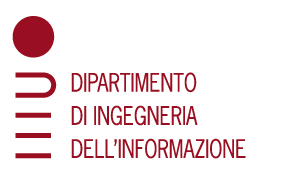Modern embedded controllers are often characterised by an important level of variability in the computation requirements for the extraction of sensor data. What is more, obviouscost reasons demand sharing hardware between different concurrent activities.These facts strain the assumptions that underlie classical flows for the designof digital controllers: constant delays and infinite availability ofcommunication and computation resources.In this setting a system design with guaranteed control performance requires:
- the adoption of scheduling mechanisms and of models of computation that make for the definition of accurate stochastic models for the evolution of the computing platform,
- the development of analysis techniques that link the choice of the scheduling parameters to the Quality of Service provided by the computing platform,
- the development of algorithms for the evaluation and the optimisation of the Quality of Control provided by a controller's implementation given the Quality of Service provided by the platform.
In this talk, we will show our results on each of these areas. The techniques we propose allows tackling such questions as: 1. the choice of the platformparameters that minimise the resource consumption of a control application with guaranteed levels for the Quality of Control, 2. find the best selection of theplatform parameters for a set of control application competing for the same platform.






